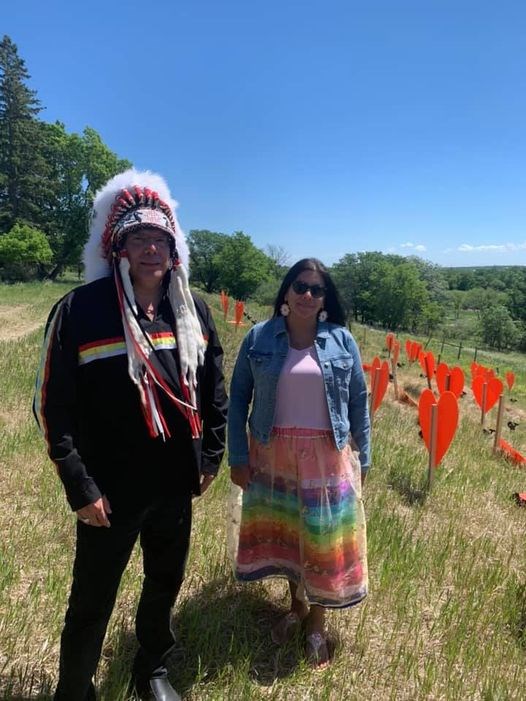First Nations leaders in Manitoba spoke about the painful legacy of residential schools in Canada on June 24, the same day that a Saskatchewan First Nation announced that the remains of 751 people in unmarked graves were discovered at the site of a former school.
Speaking during an online press conference during which he and Southern Chiefs’ Organization (SCO) Grand Chief Jerry Daniels shared their thoughts on residential schools and how to deal with the abuses committed at them and their effect on Indigenous people today, Manitoba Keewatinowi Okimakanak (MKO) Grand Chief Garrison Settee said that acknowledging the country’s past is necessary.
“It’s an ugly, harmful history,” he said. “Canadians must realize this country was founded on an aggressive assimilationist philosophy. You can’t erase this past. You must confront it and look at it for what it truly is.”
Daniels said the mindset that motivated the creation of the residential school system still exists today in other institutions.
“These institutions are looking to assimilate us continuously, even now today,” he said. “We have to be able to bring in the Indigenous, comprehensive, holistic approach to all these institutions to heal our nations. Canadians have to have our back in doing that.”
Settee, who went to the site of a former residential school in Brandon last week where 104 Indigenous children were buried, 54 of whom were from First Nations that are now represented by MKO, said Canada has no place criticizing other countries for human rights abuses on the international stage when it has not truly grappled with its own actions.
“Canada can no longer hide the hidden truth,” he said. “We want the world to know that an atrocity was committed in this country.”
He also said that churches need to make amends.
“The onus is on them to fund some of these activities [aimed at identifying and investigating unmarked graves at other residential school sites],” said Settee. “In order for us to reconcile they have to meet us halfway and do their part. The churches should be ordered to give up any documents that would help in this process. I think the churches should not be allowed to hide anything now. The churches have to disclose all the information that they’ve hidden from us and the general public.”
In a statement on the discovery of the 751 graves in Cowessess, Saskatchewan, Assembly of Manitoba Chiefs (AMC) Grand Chief Arlen Dumas said questions that need to be answered include what Canada and the Catholic Church are going to do about such discoveries.
“I know in my hear this number will continue to rise across the country,” Dumas said. “These numbers are our people. They were our children, our loved ones, our ancestors. More stories will come out. Manitoba has already uncovered 104 in Brandon. They too will be painful but they are necessary. We will keep listening. We will keep offering space for support and healing where we can.”




